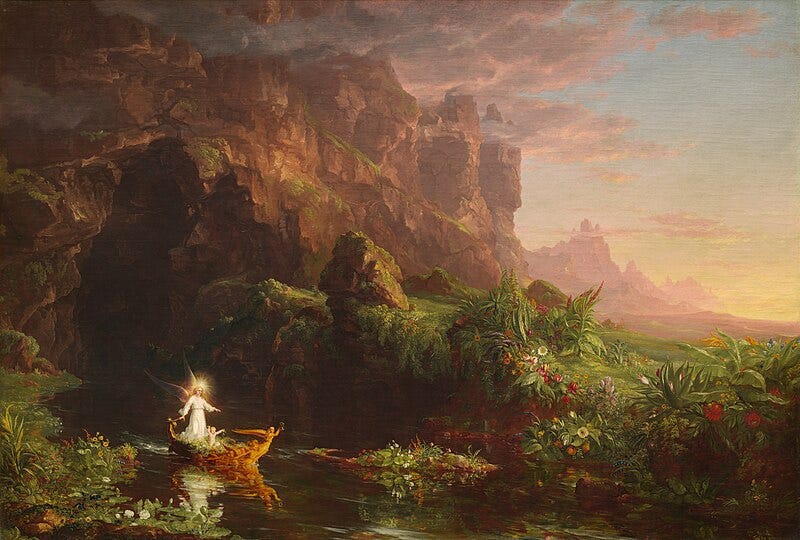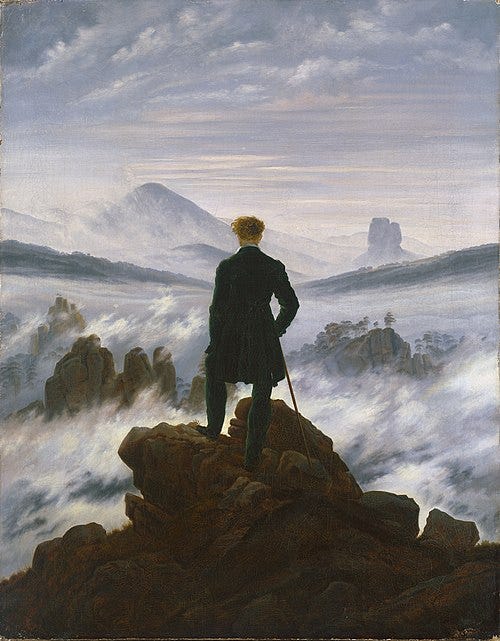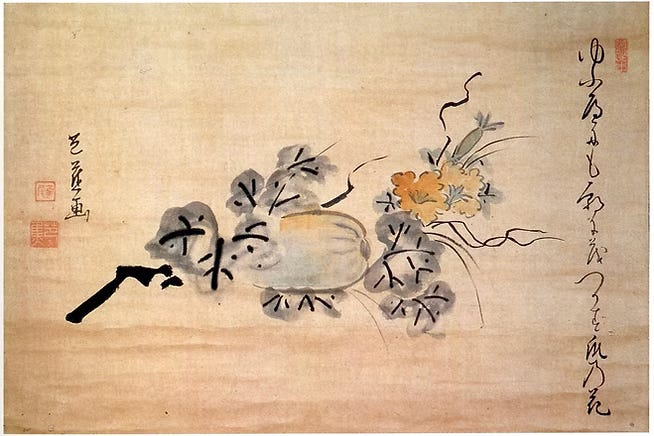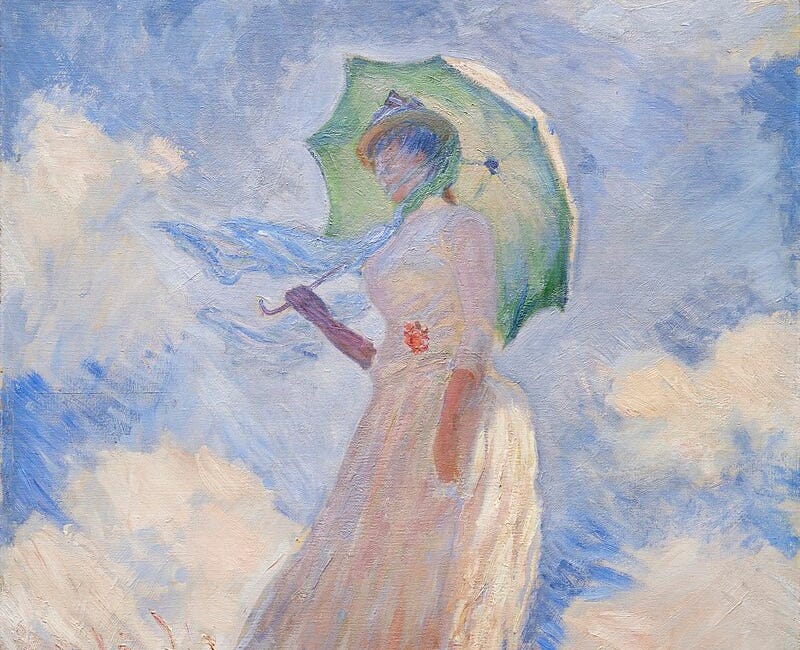Why we all need more Poetry, Literature, and Art in our Lives
Firsthand reflection on the power of Art.
Reclaiming Wonder
Since I started French en Poésie, I’ve been more immersed in literature, poetry and art than ever before, and I’ve felt the effects ripple through every part of my life. It’s not just about reading poems or learning vocabulary; it’s something deeper. I’ve seen firsthand how this kind of immersion can expand the mind and quietly transform the way you live.
The motion and routines of everyday life, don’t feel so mundane anymore. Poetry and literature seem to add a kind of brightness to the world. It makes me feel closer to something beyond myself, connected to voices that have spoken across centuries. There’s something magical about reading words written long ago and realizing they still resonate, still move something inside me. It’s like finding kindred spirits throughout history, people who felt, wondered, and loved the way I do.
This journey has helped me slow down and reflect. It’s made me feel more present, more curious, more alive. Through poetry and literature, I’m not just learning, I’m expanding, discovering, enjoying.
This experience made me realize something simple yet profound: we all need more poetry, literature, and art in our lives. Here’s why.
The Art of Attention: slowing down in a speed-obsessed world
We live in a time of unprecedented speed, constant notifications, 24/7 access to information, and pressure to produce and perform. In this whirlwind, poetry and art act as anchors.
Poetry, in particular, demands attention. It is not meant to be skimmed. Its line breaks, metaphors, silences, each invites us to pause and truly see or feel. Literature, too, pulls us into immersive worlds where presence is a necessity. Paintings teach us to observe patiently, to notice light, detail, composition.
As Mary Oliver once wrote:
“To pay attention, this is our endless and proper work.”
Engaging with art is a quiet act of resistance to distraction. It invites us back into the present, into meaning.
A Thread Through Time: Human Connection Across Centuries
One of the most moving aspects of literature is its power to connect us across time. A poem written 400 years ago can pierce the heart today. A character in a 19th-century novel may feel eerily like ourselves.
This isn’t coincidence, art articulates the timeless aspects of human experience. Love, grief, awe, despair, longing, these are constants. Through words, we find kindred spirits across continents and centuries. This feels like magic to me.
As Emily Dickinson once wrote:
“If I feel physically as if the top of my head were taken off, I know that is poetry.”
Reading poetry, we realize we are not as alone as we sometimes feel.
Literature Builds Empathy, Imagination, and Cognitive Depth
Engaging with literature isn’t just emotionally nourishing, it has measurable psychological and intellectual benefits.
A 2013 study published in Science found that reading literary fiction improved participants’ “theory of mind”: the ability to understand others’ mental states. Fiction, by requiring us to inhabit different perspectives, deepens our empathy.
Other studies show:
Reading poetry activates the brain’s reward system in ways similar to music and love.
Reading literary fiction improves vocabulary, memory, and focus.
Exposure to the arts in general is linked to greater civic engagement, well-being, and even longevity.
Poetry and literature expand both the heart and the mind.
Making the Mundane Sacred
One of the most beautiful gifts of art is its ability to transform how we see everyday life. A poem, a sentence, a word can lift the veil of routine and show us something sacred beneath.
Poet W.S. Merwin wrote:
“Poetry is a way of looking at the world for the first time.”
Art reframes the familiar. It brings out the quiet dignity in small things. It doesn’t change the facts of life, it changes our way of seeing them. It re-enchants the world.
Art as Solace, Resistance, and Meaning in Turbulent Times
When the world feels overwhelming, art gives us a way to make sense of it. It offers language to grief, structure to chaos, beauty amid despair. In this sense, engaging with poetry and literature can be a deeply human survival mechanism.
Art is a container for sorrow and a celebration of joy. It can be an act of rebellion against apathy, injustice, or numbness. It reminds us that meaning is not always found in solutions but in expression.
As Toni Morrison said:
“This is precisely the time when artists go to work. There is no time for despair, no place for self-pity, no need for silence, no room for fear. We speak, we write, we do language. That is how civilizations heal. I know the world is bruised and bleeding, and though it is important not to ignore its pain, it is also critical to refuse to succumb to its malevolence. Like failure, chaos contains information that can lead to knowledge — even wisdom. Like art.”
Language, Rediscovered: Coming Home to My Mother Tongue
Immersing myself in French poetry didn’t just deepen my love for literature, it brought me back to my own language in a way I hadn’t expected. Even though French is my native tongue, studying it through poetry and literature revealed layers I had never fully noticed before.
Through the voices of poets, I began to hear the music of the language again, its rhythms, silences, textures. I became more aware of the precision, the elasticity, the emotional weight that words can carry when they’re chosen with care. The familiar started to feel fresh, charged with meaning. Poetry reminded me that language isn’t just a tool, it’s a living material, capable of infinite nuance and beauty.
In a way, I fell back in love with French. Not the formal, academic French of grammar books but the sensual, expressive, surprising French of poets who know how to stretch and sculpt it until it sings.
If you’re learning French and crave more than grammar rules, if you want to feel the language, hear its rhythms, and explore its soul, this newsletter is for you.
🪶 Tuesdays: A French poem with audio, translation, vocabulary, and grammar insights.
📚 Thursdays: Literary excerpts to immerse you in French as it’s really lived and felt.
Poetry, literature, art, music and culture to help you fall in love with French, one beautiful bite at a time.
A Call to Slow Down and Listen
Poetry, literature, and art are not luxuries. They are tools for living with more depth, attention, and empathy. They don’t ask us to escape reality, they ask us to see it more clearly, and to feel it more deeply.
Whether you’re reading the verses of a long-gone poet or standing quietly before a painting, you are engaging in an act of presence. And in doing so, you might just discover, like I did, that the world is brighter, richer, and more connected than it once seemed.
To end in art and beauty, I wanted to part on a beautiful exemple of poetry and art coming perfectly together. This is a haiga, a traditional Japanese art form that combines a haiku poem with a painting or image, to capture a fleeting moment or emotion with simplicity and depth, where each element enhances the other.
'Neither to evening
Nor to morning does it belong -
The melon blossom.'
Let's dream, learn, and grow together, one beautiful word at a time.
Merci de me lire,
à très bientôt
Morgane Andersson










I agree with everything you said, but for me it’s important to elaborate on empathy. Most quotidian speech is formulaic: you go to the bank or restaurant and you engage vocal and behavior machines. This is why so many human interactions can be emulated by AIs; the emulation is algorithmic. Poetry fights against this. It wakes us up. As you wrote, it renews the world for us. Most importantly, it opens a portal to another mind. I can feel Ovid’s jovial and slightly patronizing whimsy; I can feel T. S. Eliot’s morose struggle with religion or E. E. Cummings’ delighted sexuality, or how totally blown away and ecstatic Emily Dickinson was when she walked through a garden. You can’t reduce these poets to abstractions, their work makes them live vividly in our heads. And that’s *really* important. As Housman wrote in “Terence, this is Stupid Stuff” (which is, at least in part an apology for poetry) “It should do good to heart and head when your soul is in my soul’s stead”. Engagement, empathy, seeing through another’s eyes, is one of the greatest gifts of poetry.
This was lovely, and such an important message. Are you familiar with '4,000 Weeks' by Oliver Burkeman? He shares an interesting exercise he tried, I believe it's something that students at art school in Harvard (maybe?) are required to do. He went to a gallery or museum and had to sit and look at one piece of art for something like 4 hours without any interruptions, no phones, no reading, no notes, just to sit and gaze and immerse yourself. Talk about taking things slow! I've considered doing something similar.